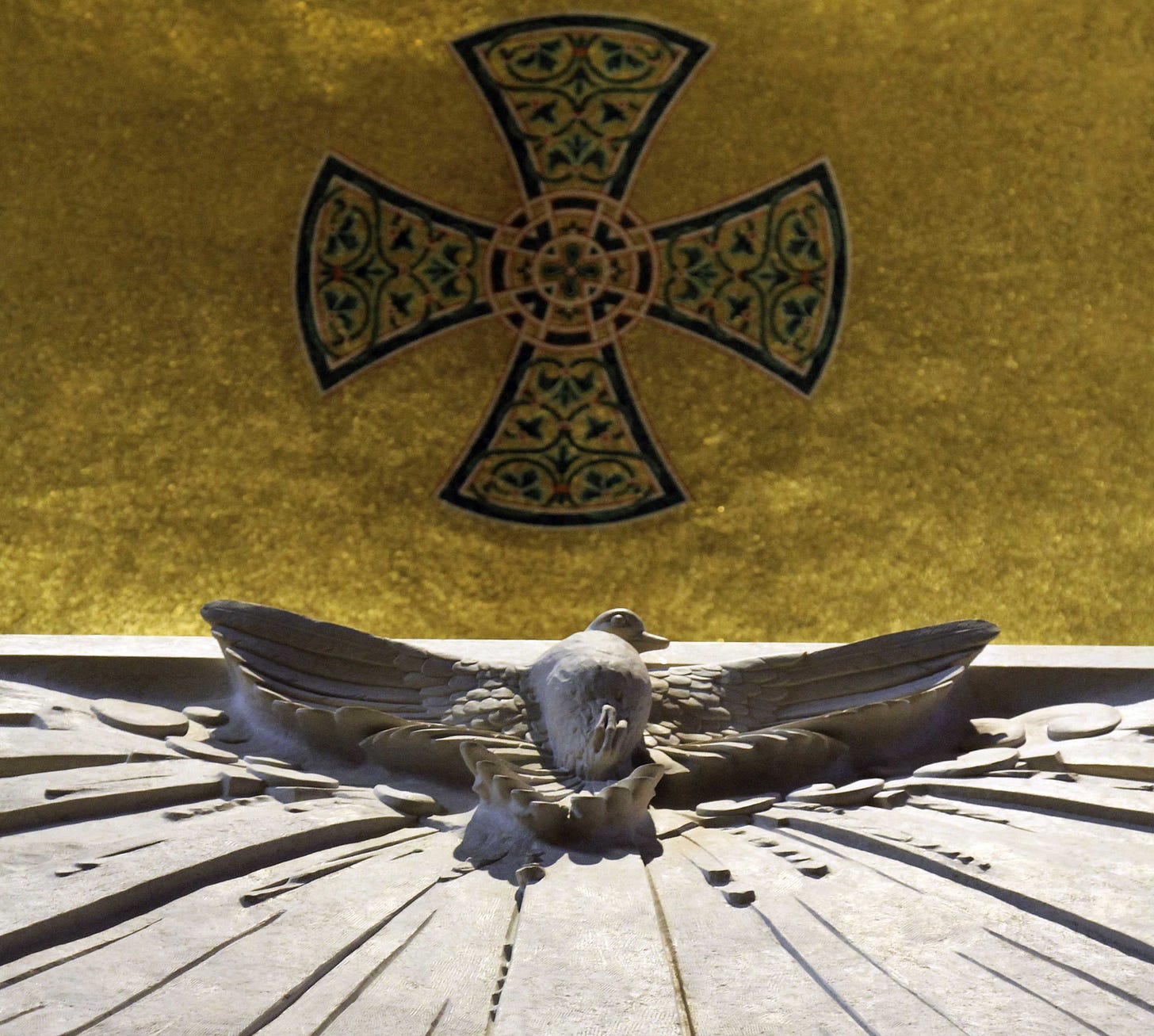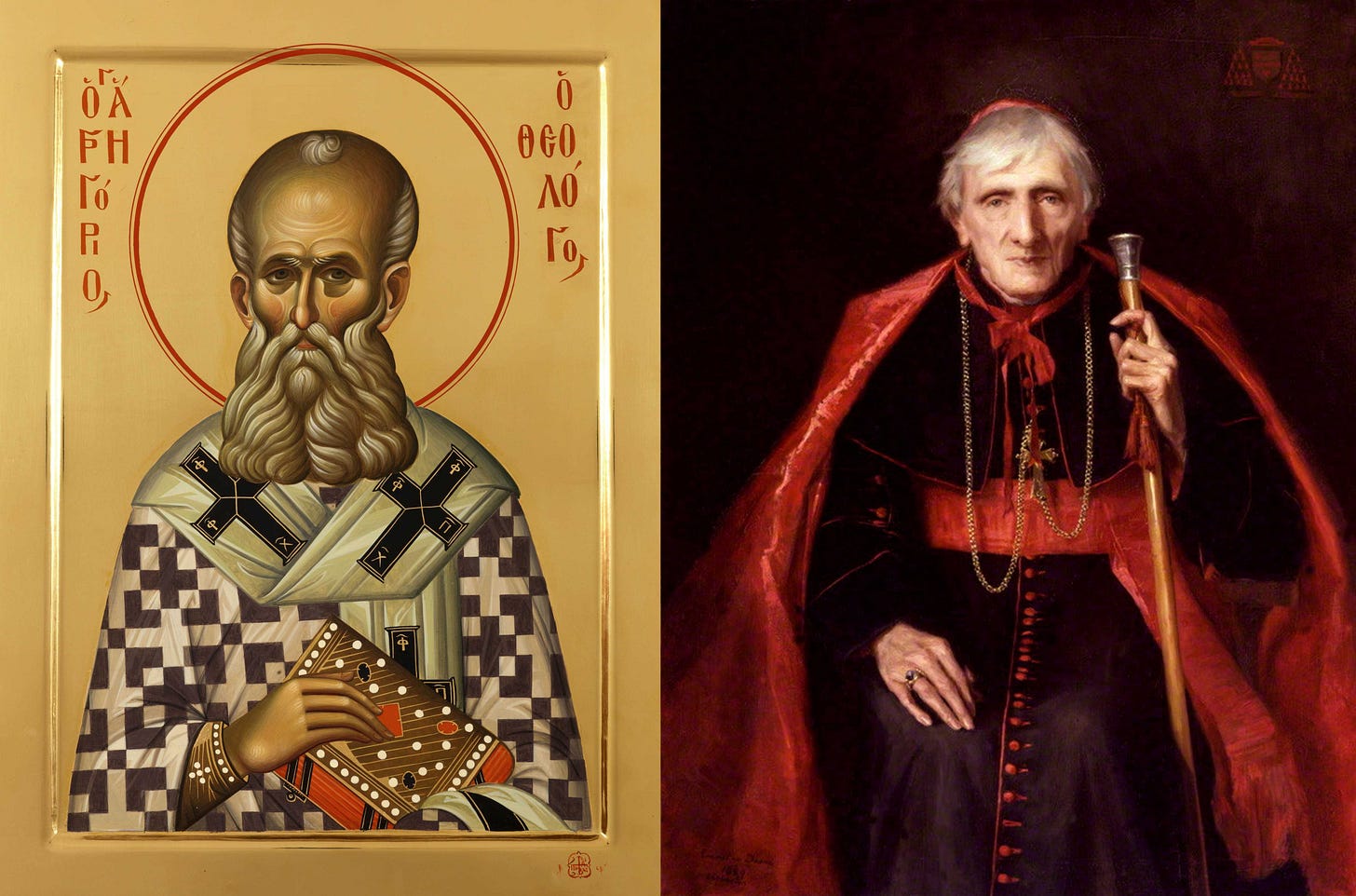CONCLAVE SPECIAL: Does the Holy Spirit “Pick the Pope”? Does He “Inspire” Councils and Papal Decisions?
A need for serious theological clarification to prevent false and harmful assumptions — and to encourage fervent prayer

Instead of a Thursday article this week, we have a special article today, marking the start of the Conclave at the Vatican.
To unlock this article (and many others, past and future), please take advantage of our Second Anniversary offer, which ends Thursday, May 8:
In the weeks around any Conclave that will elect a new pope, one will hear well-meaning people say things like “the Holy Spirit chooses the pope” and “the cardinals are guided by the Holy Spirit.” This, however, is poor theology; what is more, it is dangerous theology, for the reasons I will explore in today’s essay, drawing on the work of saints and scholars who have paid close attention to this vitally important subject. Certainly, we may hope and we must pray that the cardinals will allow themselves to be guided by the Holy Spirit whom they solemnly invoke, but they are not puppets pulled by divine strings, and, as history shows, they can sin repeatedly against the light— even if they cannot ultimately prevail against Providence. The same is true for Ecumenical Councils and for the non-infallible decisions of popes.
Responding to a Common Objection
Once upon a time, I received a letter from a reader who was trying to make sense of the relationship between the Second Vatican Council, the liturgical reform, and the Holy Spirit. Here’s what he wrote:
Dear Dr. Kwasniewski,
Watching Mass of the Ages Episode 2 and your interview with Raymond Arroyo brought up some questions I’ve been struggling with. First, doesn’t it seem like the Novus Ordo was close to what the Council Fathers intended? I say this because (a) we know that Bugnini was secretary of the committee that drafted Sacrosanctum Concilium [SC] and (b) nearly all the bishops after the Council went along with the reforms. My neo-con friends say that SC and the new missal are fine— they should have resulted in a “smells-and-bells reverent Novus Ordo,” but liberals in the Church hijacked the implementation of the Council and of the reform for their own ends and distorted what was good into its opposite. If this is true, then (so my neo-con friends say) there is no need for the TLM; all we need to do is “get the Novus Ordo right.” Second, these defenders of the Novus Ordo also assert that, since “the Holy Spirit inspired the Council,” the Council was good in all respects, including the reform of the Mass it called for. They contend that if we do not support the Novus Ordo, we are acting against the Holy Spirit. Something doesn’t sit well with me in these arguments, but could you help me to put a finger on what’s wrong?
Yours in Christ,
Newbie Trad
Dear Newbie Trad,
Thank you for your questions. The first question can be dealt with rather straightforwardly: no, the Novus Ordo is not “close” to what the Council Fathers intended, as can be demonstrated in two ways: we can simply compare what SC specifies to what actually happened and notice the major discrepancies; and we can look to what well-informed Council Fathers and periti said afterwards about those discrepancies.
Fortunately, that work of comparison has been done already many times, so all you need to do is a bit of reading up on it. It won’t take long and it will be a rewarding exercise.1 (Further below, I will quote the stunning admission of Joseph Ratzinger in 1976.) In Yves Chiron’s biography of Annibale Bugnini, we learn of the advice given by that master of deceit to the committee that drafted SC ahead of the Council: We must speak in acceptable generalities and leave a lot of things open-ended, so that we don’t risk scaring off the bishops; and then afterwards we may do as we please.2

As to why nearly all the bishops went along with the increasingly radical reforms afterwards, in spite of the fact that most of them were singing the praises of tradition prior to the Council and reassuring the faithful that the things they loved would remain in place, the answer may be inferred from looking at how bishops act today and, frankly, at most times in the history of the Church: either as craven hyperpapalists, cowardly bureaucrats, or ambitious careerists (indeed, these three categories are not mutually exclusive). Occasionally, some even become convicted ideologues, like the bishops who gladly hailed Henry VIII as head of their Church in England, or the ones who gleefully signed off on the Civil Constitution of the Clergy in France in 1790, or, more recently, the ones who endorsed the Sexual Revolution by opting out of Humanae Vitae in 1968.
In living memory (I hope) is the abject failure of many bishops to reject Pope Francis’s false teachings on a host of subjects: sacramental access for the so-called divorced-and-remarried, the “inadmissibility” of the death penalty, God’s willing of all religions as he wills the two sexes, and the ecclesial self-contradictions of the Synod on Synodality and the new Constitution for the Roman Curia. Should we be scandalized? Yes. Should we be surprised? I’m afraid the answer is no. There’s a reason why, out of innumerable thousands of bishops in Church history, only a small number are found in the Roman Martyrology…
Let me plunge into your second and, to my mind, more important question, about the last Council as “inspired by the Holy Spirit.” A well-known theologian wrote the following:
Not every valid council in the history of the Church has been a fruitful one; in the last analysis, many of them have been a waste of time. Despite all the good to be found in the texts it produced, the last word about the historical value of Vatican Council II has yet to be spoken.
Was that a notorious heretic like Hans Küng? No. It was the late Joseph Ratzinger, in Principles of Catholic Theology.3 Another great theologian and church historian cited a Church Father who said, concerning his own time:
If I must speak the truth, I feel disposed to shun every conference of Bishops; because I never saw a Synod brought to a happy issue, nor remedying, but rather increasing, existing evils. For ever is there rivalry and ambition, and these have the mastery of reason;— do not think me extravagant for saying so;— and a mediator is more likely to be attacked himself, than to succeed in his pacification. Accordingly, I have fallen back upon myself, and consider quiet the only security of life.
That was St. Gregory Nazianzen, quoted by St. John Henry Newman.4 I quote these passages because I think we need, in general, a mighty dose of realism and theological accuracy when it comes to what can and should be said on behalf of any church council— even an ecumenical one.
Keep reading with a 7-day free trial
Subscribe to Tradition and Sanity to keep reading this post and get 7 days of free access to the full post archives.



